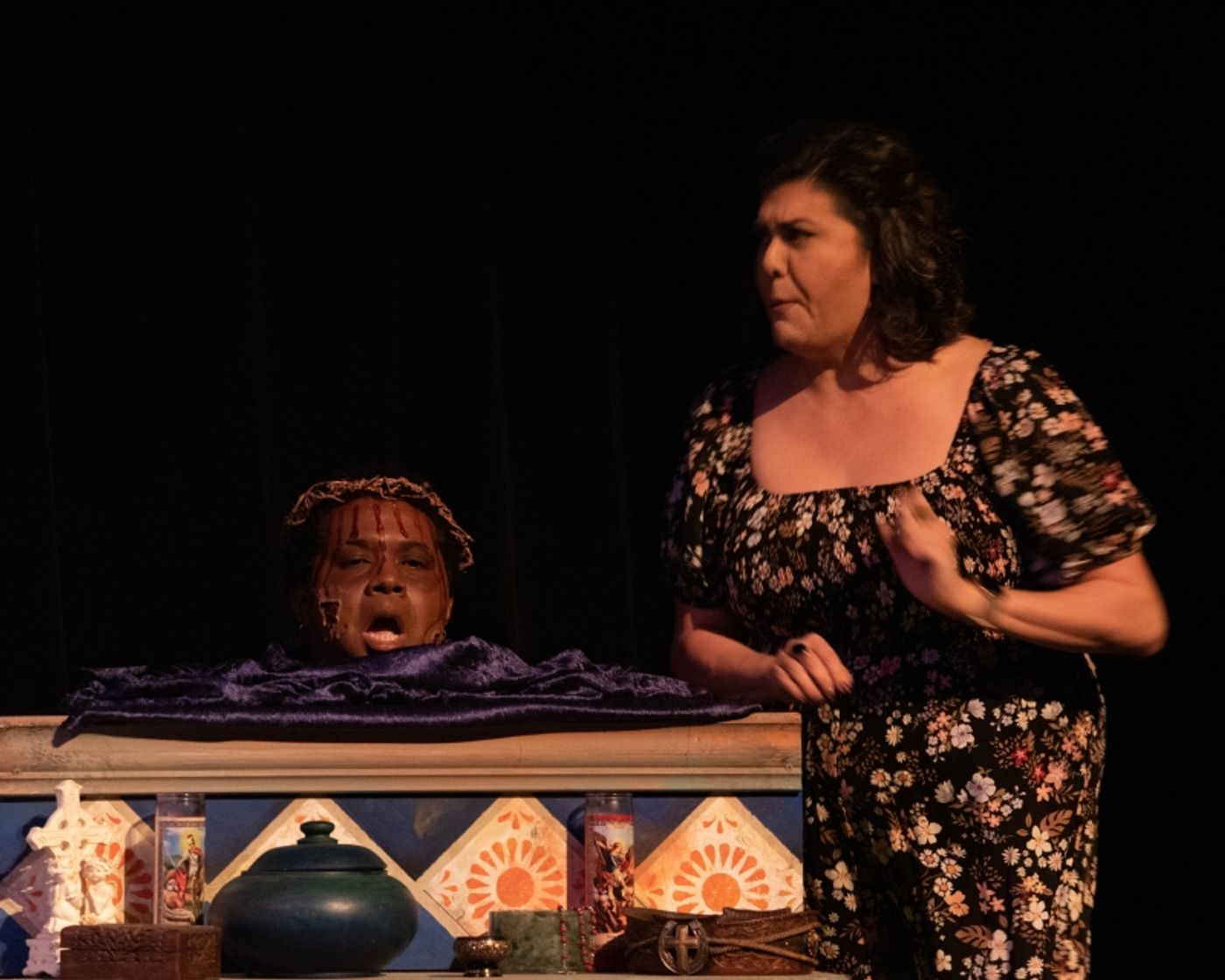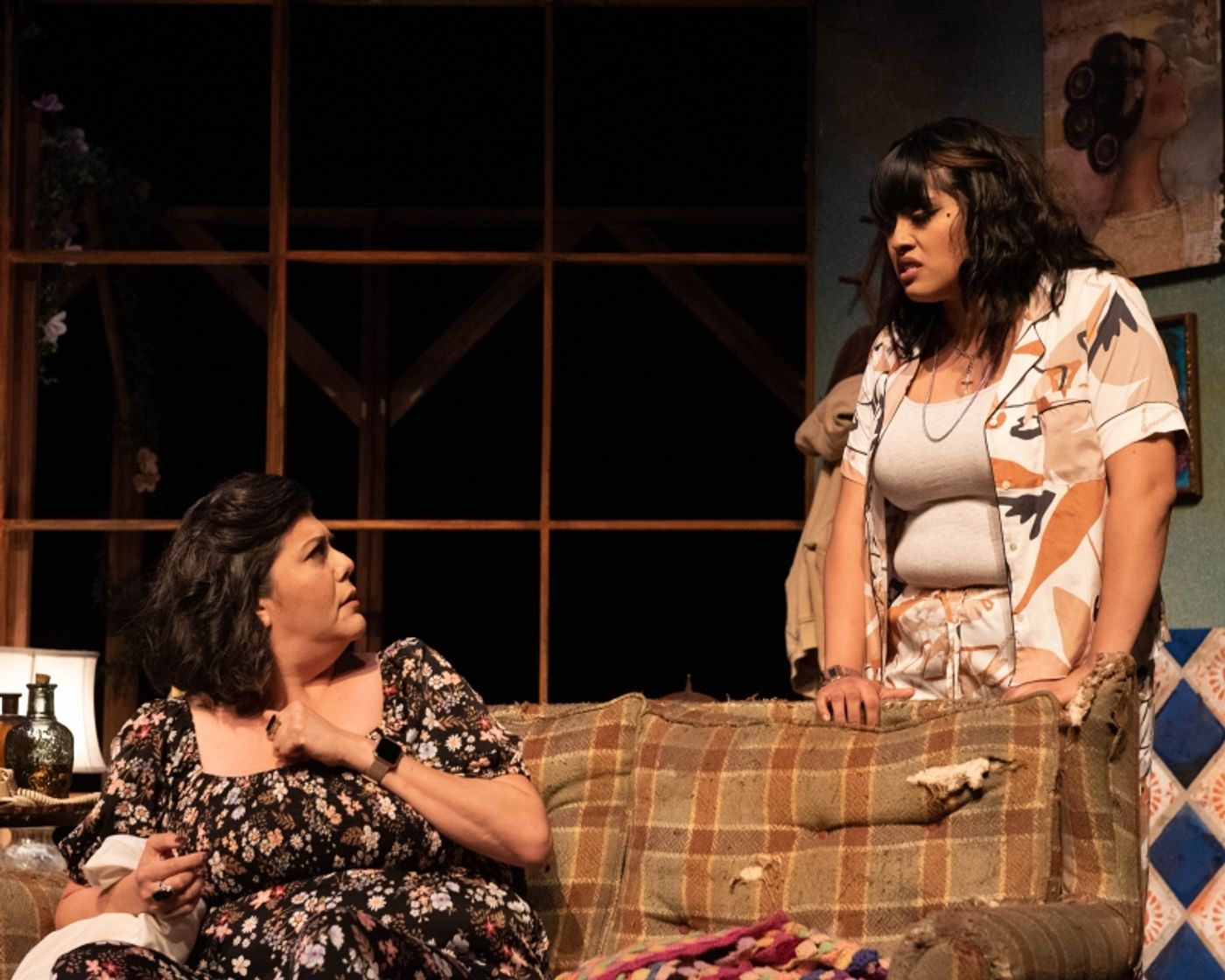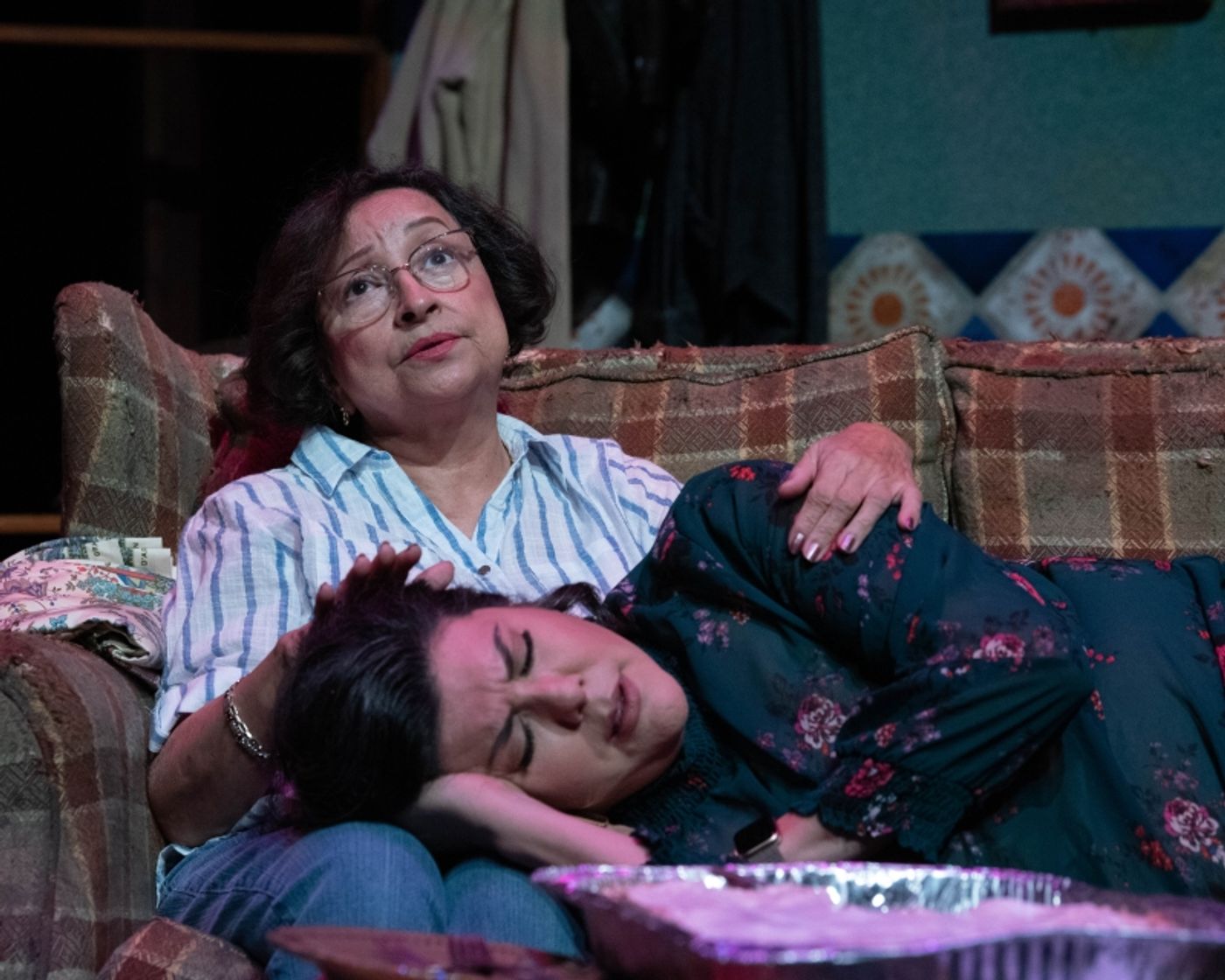Review: GHOSTS OF BOGOTÁ Opens Inspired Season at Stray Cat Theatre
BIPOC plays are the staple in Stray Cat's new season.

With its first BIPOC season underway, Stray Cat Theatre bucks a familiar system and redefines what a modern theatre company can look like. Not that we're surprised; a quick peek at the company's mission suggests it's never been the kind to avoid a new challenge.
While the jury is out on the commercial impact of its 21st season, Stray Cat has already earned this reviewer's ovation for facilitating an urgent cultural discourse. And I don't mean one obligatory play to whet the palate, but a slew of new works by artists of color to confront a legitimate controversy about representation.
GHOSTS OF BOGOTÁ is the first production in Stray Cat's intrepid lineup. Playwright Diana Burbano (also an accomplished actress), has fashioned a dark, irreverent comedy, riffing on the incongruous motif of sexual trauma and unholy exorcism. It thumbs its nose on conventions of space and time - as it should, given the task of probing the unconscious and whipping up a contentious dialogue with deceased relatives.
Consider Kushner's - or Ruhl's - penchant for magical realism, but through the unique lens of the Latinx experience. Burbano dispenses a delectable sass while flouting the spectral realm of departed kin. She checks the boxes, if you will, and treads where lesser dramatists might opt for a quick detour.
Care for a disembodied talking head of Jesus? Or a despised grandfather's ashes in a cookie tin? Mind you, that's merely scratching the surface.

Spanish is spoken intermittently throughout the play, but there's no reason to be anxious over the vernacular. It's all contextual and doesn't leave you begging for an interpreter.
The play centers around three "uber-Americanized" Colombian siblings - Lola, Sandy, and Bruno - who arrive in Bogotá from the United States to help bury the grandfather no one mourns. Saúl, the grandfather, sexually molested Lola and Sandy when they were impressionable little girls, causing years of unspoken trauma that now comes to a head as the sisters manage the weight of unfinished business Saúl left behind.
Lola, the eldest sibling with a TV career, manages her pain with a rambunctious façade that would regale a ballroom full of strangers. Sandy keeps hers tucked inside, subjugating her lifelong shame with cold, manufactured logic (she's a doctor). Bruno, youngest of three, was born in the US, hence unmoved by an otherwise significant family history. He works, he imbibes, and enjoys sex with anyone willing to engage without ties.
Alejandra Luna directs an earnest ensemble that fitfully hits the mark, with some members more attuned to the narrative style than others. Shelly Trujillo as Lola accounts for most of the heavy lifting as she clearly grasps the stakes beneath her raucous disposition.

Angel Sicairos as younger sister Sandy exhibits a justifiable rage in confronting her dead perpetrator, Saúl. But the stringent logic of the most responsible sibling should perhaps be more evident in the first act, as opposed to the dour and brooding temperament of a woman lacking confidence. Nuance aside, Sicairos' ambivalence remains a valid choice based on a common, observable coping mechanism.
Anthony Martinez completes this unique trio of Colombian expatriates. The youngest of siblings, Martinez's Bruno is flippant, hedonistic, and prone to risky habits. He is also fiercely honest and knows where he stands.
All three actors have shaped a genuine illustration of domestic tension and intimacy - that singular, indispensable element of family dynamics. It's not a stretch to believe that they grew up together, which inclines us to root for all of them, warts and all.

Greta Skelly plays the sprightly grandmother, Nena. Skelly brightens up the room where she visits the ailing Lola (no one else can see her). George Gonzalez is Saúl, who shows up to work out Sandy's karmic business. Giselle Torres is the youthfully awkward Teresa, whom Saul was living and sleeping with until he died. Finally, Bray Lawrence is entertaining as Creepy Jesus (you read that right), an ageless model of peace but nonetheless an audacious caricature of himself.
An intuitive scenic design by Tianna Torrhilon-Wood delineates a well-worn space, suggesting the eerie apprehension of an oppressive patriarch and the stark realities of a sad old city beyond the interior walls.
As a byproduct of that smart design, blocking and composition become an enormous asset - or a liability, notably in terms of how actors treat the sacred space they're given. I would fancy a more dynamic use of the actors' staging and placement, perhaps a bolder physicality where the spirits are concerned. It would seem to suit Burbano's idiosyncratic writing approach; as it is, crossed arms and standing profiles for a good chunk of the dialogue leave a lot more to be desired.
It should be said that Diana Burbano has gifted the community with a fearless piece of artwork, not to mention a symbolic bridge linking the traditions that have served us well to the burgeoning possibility that is vibrant and inclusive. And in a theatre canon historically dominated by men, it's energizing to come across new works written and populated by women of power and agency.
GHOSTS OF BOGOTÁ continues its run through October 15
Tempe Center for the Arts STUDIO THEATRE
700 W. Rio Salado Parkway, Tempe, AZ 85281
For tickets and more info, call (480) 227-1766
Photo Credit: John Groseclose
Reader Reviews
Videos

